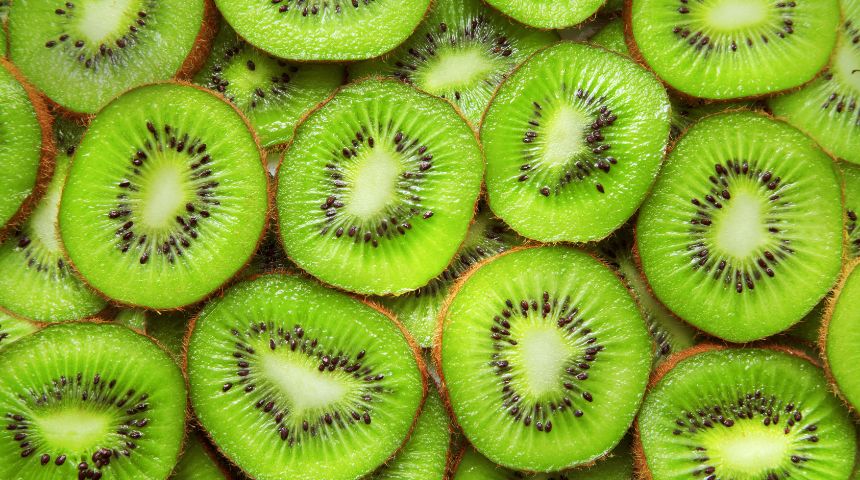10 Foods That Improve Your Sleep
A good night's sleep can be made easier with the right foods in your diet. Many people do not know that what they eat affects how well they sleep. Some foods can help the body make chemicals that calm the mind and body. Let's look at ten foods that improve your sleep quality that you can add to your diet today.
1. Almonds
Almonds are a healthy nut that is filled with magnesium. Magnesium is a nutrient that helps relax the muscles and mind. It also helps the body produce melatonin. Melatonin is a hormone that tells your body when it is time to sleep. Eating a small handful of almonds a few hours before bedtime may help you relax.
2. Turkey
Turkey is known as a food that can help you feel sleepy. One reason is its high content of tryptophan. Tryptophan is an amino acid that helps produce melatonin and serotonin. Serotonin is a chemical in the brain that helps calm you down and makes sleeping easier. A slice of lean turkey meat in your evening meal may bring a feeling of drowsiness.
3. Kiwi
Kiwis are not only tasty but may help improve sleep quality. Studies show that eating kiwi could reduce the time it takes to fall asleep and increase the number of hours you sleep. Kiwis contain antioxidants and serotonin, which help regulate your sleep cycle. Eating a kiwi after dinner might be an easy addition to your nightly routine.
4. Chamomile Tea
Chamomile tea is a popular herbal drink that many people have before bed. It contains apigenin. Apigenin is a compound that binds to receptors in the brain that reduce anxiety and help ease sleep. Drinking a warm cup of chamomile tea in the evening can make you feel calm and help you wind down.
Related Search Topics (Ads)
5. Fatty Fish
Fatty fish like salmon, tuna and mackerel have lots of omega-3 fatty acids and vitamin D. These nutrients help the brain make melatonin naturally. Omega-3 fatty acids also support overall heart health, which is good for your sleep patterns. Eating a portion of fatty fish for dinner a couple of times a week can promote restful sleep.
6. Walnuts
Walnuts are another type of nut that can support better sleep. They have natural melatonin. Melatonin signals your body to sleep. Walnuts are also a good source of healthy fats and protein. Adding walnuts to your snack time or a salad can help you get a little boost of sleep-friendly nutrients before bed.
7. Bananas
Bananas are a popular fruit that can be a good choice for sleep. They are rich in potassium and magnesium, two minerals that help relax the muscles. Bananas also have vitamin B6. Vitamin B6 helps the brain convert tryptophan into melatonin. Eating a banana before going to sleep can help your body prepare for rest.
8. Oatmeal
Oatmeal is a warm and comforting food that is not just for breakfast. It contains melatonin, which can help send signals to your body that it is time to sleep. Oatmeal also has a good amount of complex carbohydrates that help you feel full and satisfied. A bowl of oatmeal at night can be both comforting and helpful for sleep.
9. Tart Cherry Juice
Tart cherry juice is made from tart cherries that are full of antioxidants. This juice has a high level of melatonin as well. Many people drink tart cherry juice in the evening to help improve the duration and quality of sleep. A small glass of tart cherry juice before bed may help you fall asleep sooner.
10. Leafy Greens
Leafy greens such as spinach are packed with nutrients that support relaxation. Spinach has calcium, which helps the brain use tryptophan to make melatonin. It is also rich in magnesium. Adding a small serving of spinach to your dinner or making a small salad can improve your sleep quality.
Good sleep is a building block for a healthier life. When your body is calm, your mind can rest. With better sleep, you may feel more energetic during the day. Consider this guide on the best diet for sleep next time you plan your meals. Your body will thank you with a peaceful night's sleep.
Keep reading for tips on how to quit smoking.
The information on this website is for general educational purposes only and is not a substitute for professional medical advice. Always consult your doctor or qualified healthcare provider before making changes to your health, diet or treatment plan.

